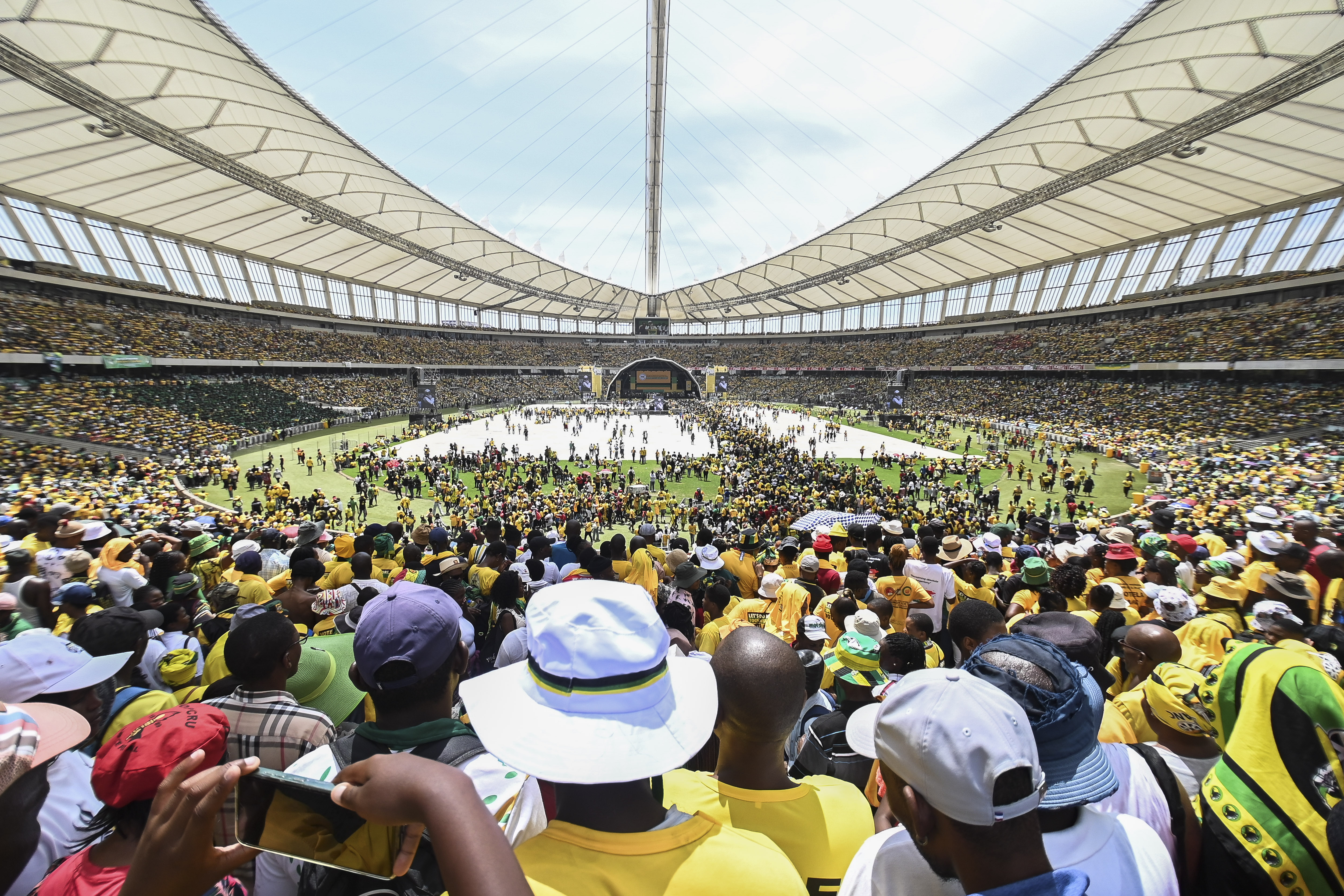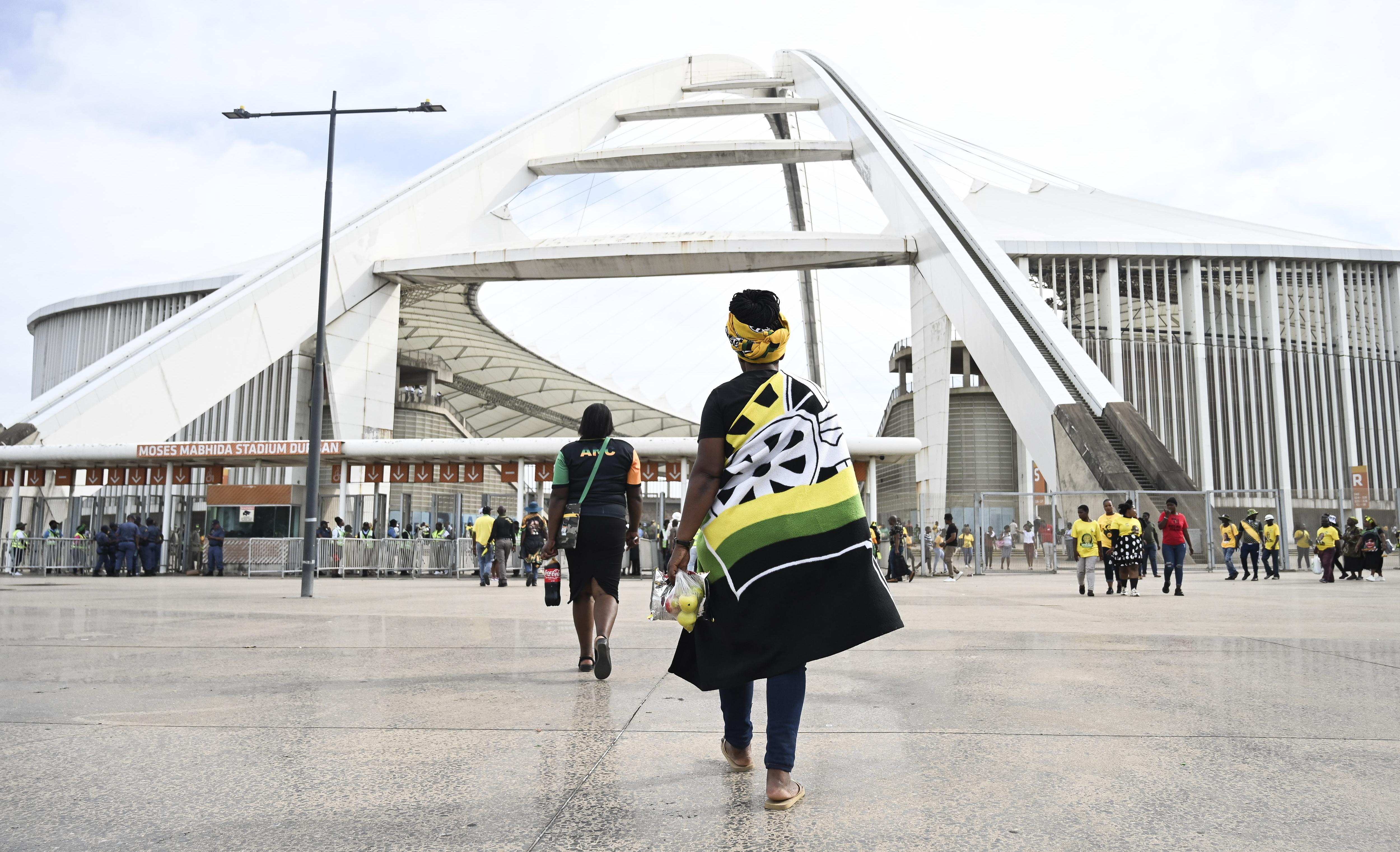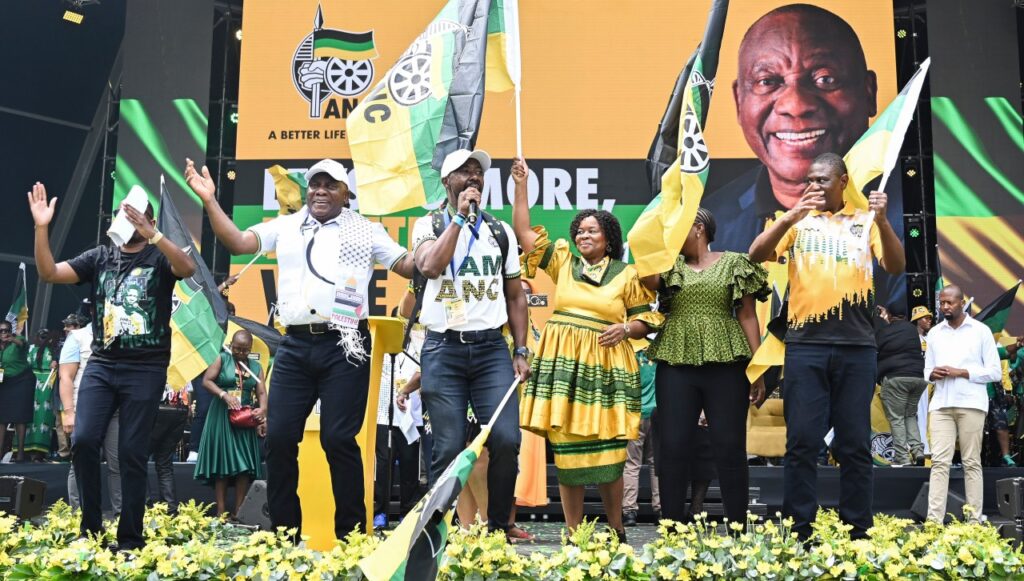The ANC is fighting its toughest election in 30 years, but the ruling party has promised to create 3.5 million job opportunities over the next five years if it wins the May 29 election. Jobs are the number one issue for South African voters; biggest poll showed.
The party wants to direct investment assets toward growth and planning. “We will encourage and direct financial institutions to invest a portion of their funds in industrialization, infrastructure development and the economy through designated assets,” the manifesto reads. Although the budget deficit and national debt are at the highest levels, they also want to make use of sovereign wealth funds.
Defined assets, sovereign wealth funds and state intervention in monetary policy (the powers of an independent SA Reserve Bank) have been written into several ANC manifestos but have not yet been implemented. The party also renewed its commitment to further land expropriation without compensation.
The manifesto says it will “align macroeconomic policies, including interest rates and exchange rates, with economic and social priorities”. The South African Reserve Bank sets interest rates and the market sets the Rand's foreign exchange rate. ”

The ANC's election manifesto will be launched on February 24, 2024 at the Moses Mabhida Stadium in Durban, South Africa. (Photo: Gallo Images / Darren Stewart)
Cyril's Employment Agency
President Cyril Ramaphosa is now the country's largest employer thanks to his presidential employment stimulus package, and he wants to increase the number of employees. The party's manifesto, published on Saturday, February 24, states that the party's signature promise in the face of an election crisis is to increase job opportunities for 2.5 million people. There is.
The party says an additional 1 million jobs will be created through incentives for small businesses, entrepreneurs and cooperatives, especially in towns and villages.
“…1.2 million young people enter the labor market every year. Approximately 3.4 million young people are not in employment, education or training, and 4.9 million people aged 18 to 35 are unemployed. ” states the manifesto.
More state banks
The ANC also wants to start a “public banking sector” and a “public retail banking system” by creating more banks for specific sectors. The party plans to “mobilize additional domestic and international resources to support its priorities, including progressive tax reform and other measures.” Postbank, the country's largest state-owned bank, is in permanent crisis. Regional banks such as VBS Bank (Limpopo) and Itala Bank (KZN) have been plagued by successive corruption crises.

Supporters arrive at the African National Congress election manifesto presentation at the Moses Mabhida Stadium in Durban, South Africa, on February 24, 2024. (Photo: Gallo Images / Darren Stewart)
“ANC leaders only think about themselves.”
Opinion polls are predicting a dire election result, and the ANC is in a predicament. In 1994, the ANC won 62% of the vote, but three current opinion polls predict that the ANC will either fail to win a majority or barely pass 50% as of May 29. (A new survey says the party could win 53%, but it hasn't.) It hasn't been published yet. )
The ruling party is taking full responsibility for the misery of its core loyal voters who either do not vote or rely on other parties, including the EFF and Action SA.
“The suffering and suffering of so many people has led them to believe that the ANC leadership only cares about themselves, that we are tolerant of corruption and indifferent to the suffering of ordinary people. I'm here.
“We acknowledge that the ANC has made mistakes on the part of some of its members and leaders to undermine the institutions of a democratic state and advance selfish personal interests.
“Currently, the ANC is working hard to restore trust and credibility… We are currently increasing the intellectual capacity of our members and strengthening their moral and ethical orientation,” the party said. Masu.
There is a heated debate within the ANC over whether members appointed to the Commission of Inquiry into State Capture should be placed on the party's electoral list for further investigation into possible prosecution. On Saturday, February 24, Prime Minister Ramaphosa said only clean members of the party – those who can pass through the “eye of a needle” (the party's Biblical abbreviation for integrity) – will join the candidate list.
Addressing hunger and poverty
The party also wants to increase the basket of VAT-free groceries and support local communities and home gardens to strengthen food security. Approximately 30% of South Africans suffer from hunger. Prime Minister Ramaphosa said future governments would attack price fixing, which would worsen the cost of living crisis. The national minimum wage will continue to rise.
The ANC has not yet committed to delivering a basic income subsidy, but its manifesto states that it will “phase in the basic income subsidy by expanding and improving the value and scope of the SRD”. . [social relief of distress] Grants for the Unemployed.
Regarding energy security, the party only mentions one line about it, even though load reduction is one of the biggest issues and a factor that hinders support. It promises to “promote cheap, subsidized solar power generation.” The government plans to install solar panels on rooftops in poor areas.
The ANC has also emphasized a “national oil company” to allow states to increase their oil refining capacity. President Cyril Ramaphosa said SA was going through “difficult times” but investment in energy, road and rail infrastructure would end the burden shedding.
The ANC will use public works workers to “fix potholes, pave roads and maintain regional and rural roads and other road infrastructure.” The ANC also wants to strengthen the taxi industry through regularization and wants a “move” to subsidies for taxi commuters.
The manifesto states that the National Health Insurance (NHI) will be implemented over five years, but this week's budget allocates only R1.4 billion for the NHI plan.
The NHI envisages a total annual budget of R600 billion, including public and private health spending. Mr Ramaphosa said he would sign the National Health Insurance Bill on his desk.
There's nothing new about crime and corruption
Despite crime and corruption being one of the ruling party's most pressing issues, its pledges are not new, but rather a continuation of existing policies.
The party says it will “strengthen the SAPS Economic Infrastructure Task Team” to deal with entrenched syndicates. In addition to data and evidence-based policing, it also reiterates its focus on gang violence and cash-in-transit heists. The manifesto calls for increasing the number of “frontline police officers”.
The party will continue to work on strengthening the national prosecutor's office, reviewing the criminal procedure law, reducing backlogs and delays, and supporting the Legal Aid Commission.
The party says it will renew its commitment to tougher lifestyle audits, improved scrutiny and real-time audits of key projects, and strengthen anti-corruption agencies. “We must treat corruption as a crime against the people,” Ramaphosa said.
Strict response to illegal immigration
As immigration becomes a hot topic in various election campaigns, the normally laissez-faire ANC has taken a tough stance.
The report highlights that three key immigration-related bills are under review and calls for refugee and asylum centers to be located near border crossings. The party pledges to “regulate the employment of foreign workers, prioritize South African job seekers, and oppose the employment and exploitation of illegal immigrants.” It also promises to simplify visa applications.
Response to executive deployment
The DA has put cadre deployment and its impact on the state of development on the agenda, and the ANC manifesto responds to this.
“The ANC has strengthened its selection criteria for public representative candidates, prioritizing skills, educational knowledge, experience and integrity,” Ramaphosa said, calling prosecutors hypocrites in this policy. Over the past few days, former prosecutors have revealed that the opposition is developing policies similar to those reported by Rebecca Davis. here.
How does the ANC manifesto compare to the other two party manifestos released?
The ANC manifesto is based on more accurate data than the manifesto. EFF Voter Pledge, uses misinformation to make populist promises. Although progressive, it is more conservative than before when it comes to migration. The manifesto, like the EFF, is built on state power as the driving force for electoral promises. Both parties are focused on the black majority and how to empower and employ young people.
The DA manifesto excludes black empowerment (BEE) from its promises to voters, and its focus on crime and corruption is stronger than that of the ANC. While the DA focuses on jobs through growth, the ANC and EFF both target the state as an employer or promoter of jobs. The DA manifesto is more private sector-friendly than the ANC manifesto. DM
![]()

